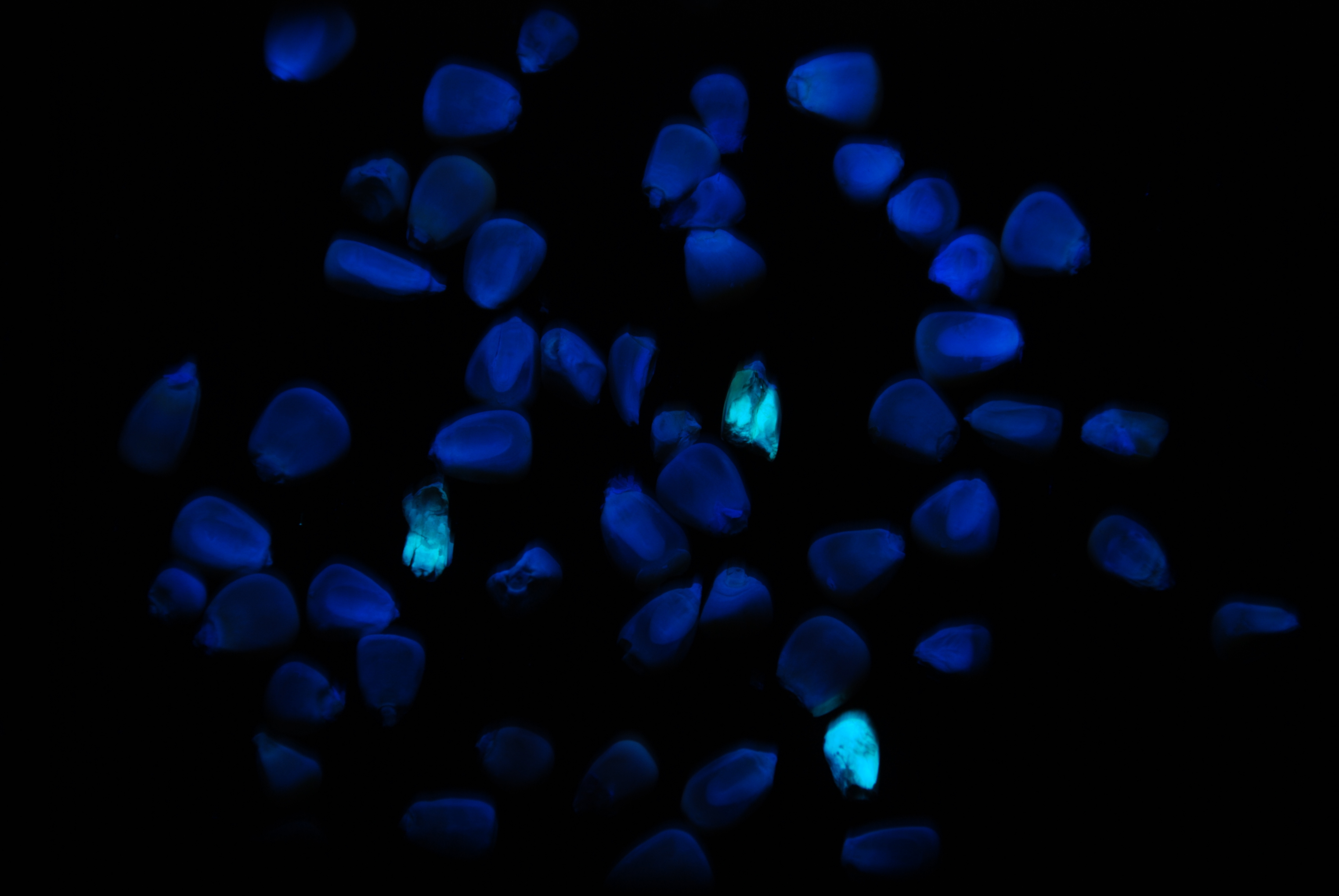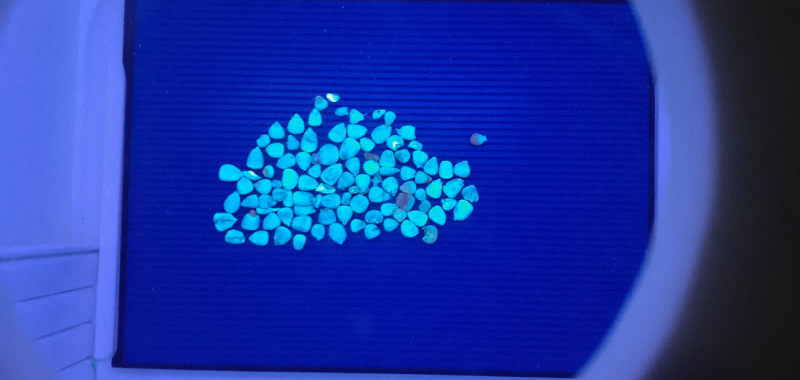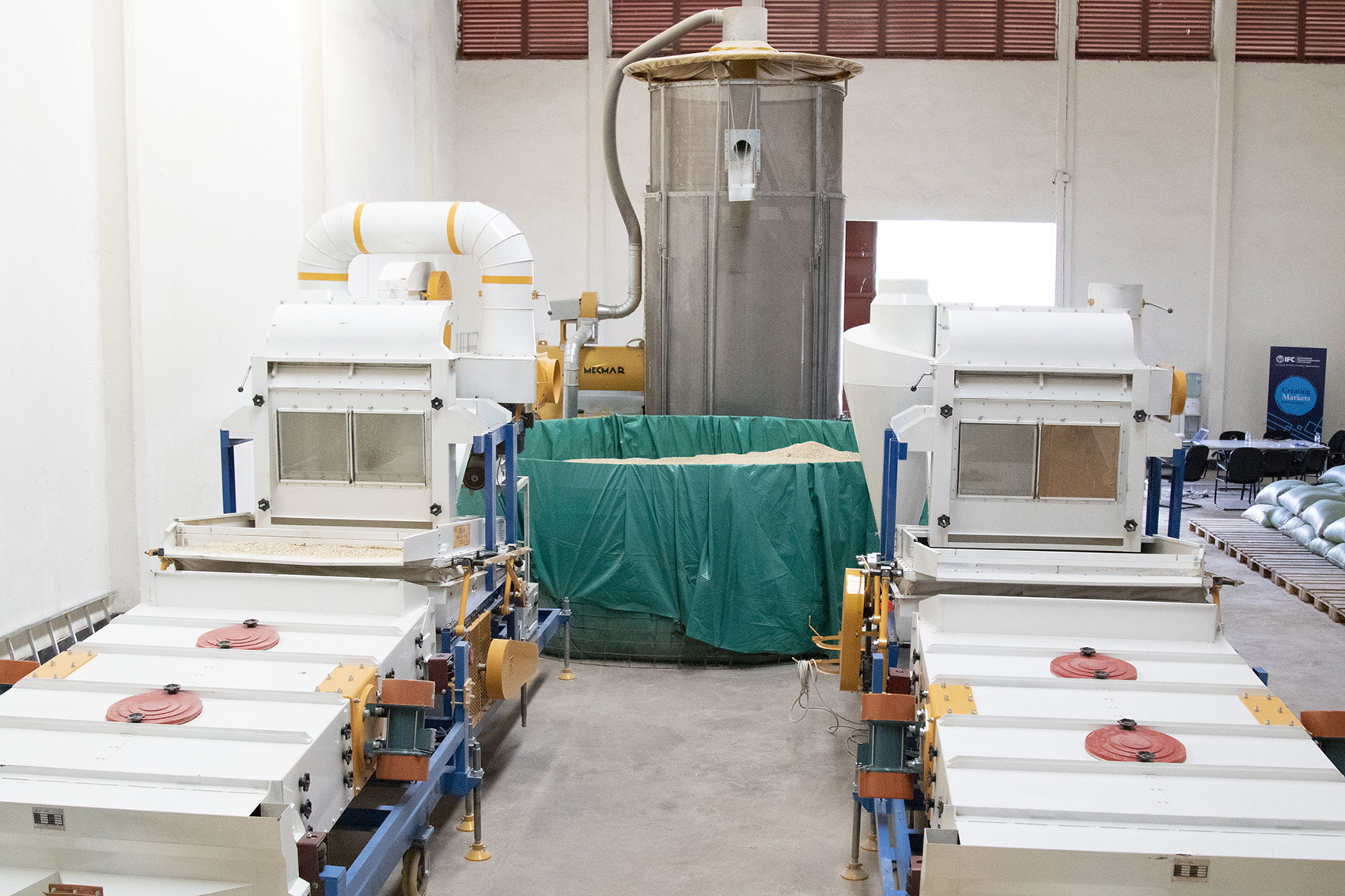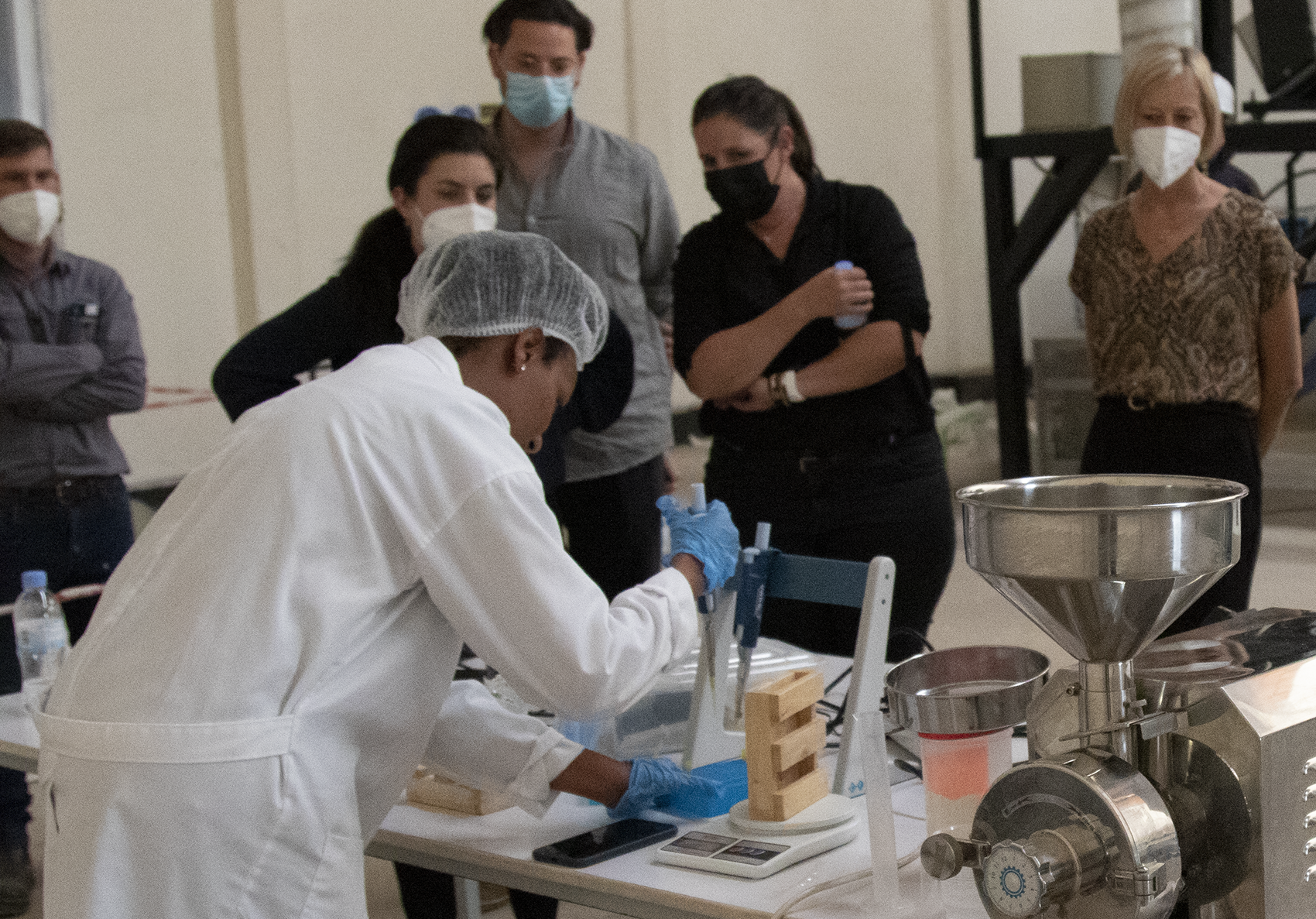Maize — a staple food grown throughout Africa — is heavily affected by the invisible carcinogen aflatoxin, a by-product of moulds. Aflatoxin is difficult for farmers to detect because it is invisible to the naked eye, and once present, it is untreatable.
The presence of aflatoxin leads to health problems for people who consume it, as well as the financial loss for smallholder farmers who can't sell their products on the market. In Rwanda, big agro-processors struggle to source locally grown, high-quality maize that is not contaminated by aflatoxin and rely mostly on costly imports.






